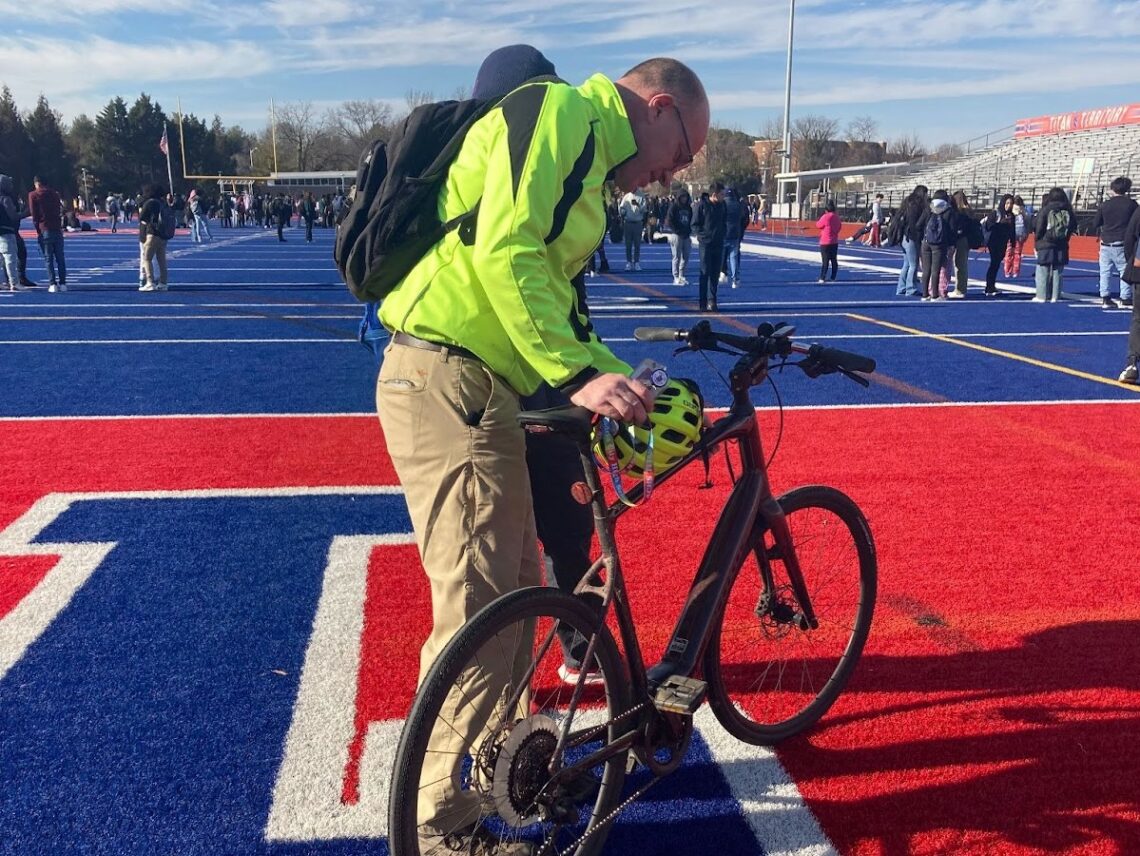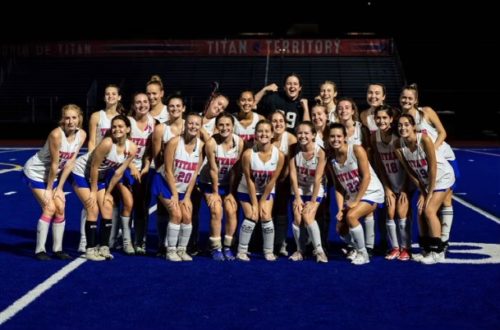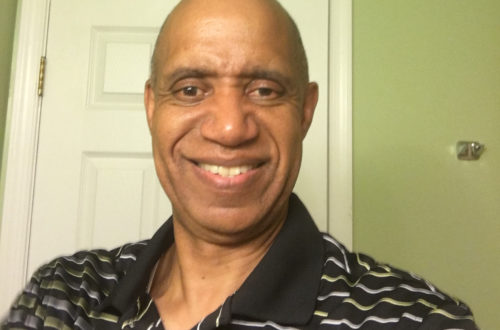Zana Royster
Staff Writer
Passionate teachers are hard to find these days, but Patrick Earle is one of the good ones! Mr. Earle is a multi-subject teacher at ACHS who creates a fun and engaging learning environment. He has a lot of environmental knowledge that he enjoys sharing with today’s youth.
Mr. Earle’s teaching career began as a Peace Corps volunteer in Costa Rica. There, he introduced the local students to environmental education.
After returning from the Peace Corps, he job-hopped and learned a very important thing about himself: he is not the type of guy who wants the typical 9-5. He “really, really didn’t like a desk job,” and much rather preferred the teaching environment he said. He says he enjoys the interactiveness and irregularity that one can only find in a classroom.
Another part of teaching that appealed to Mr. Earle was that he could create lesson plans both that connected to and and would engage students in new ways. The idea of a nine-week summer break also sparked his interest, since he loves traveling with his wife and two daughters.
During the school year, Mr. Earle teaches two classes, Advanced Placement Environmental Science (APES) and Sustainability/Renewable Technologies. His APES class is structured by College Board and has a fairly rigid curriculum. The Sustainability course, however, has more flexibility and freedom to it, allowing students and Mr. Earle to have more of a discovery-based learning experience. He was approached to teach this course when it was added to the ACHS course catalog in 2011. Prior to this, he was teaching Biology II: Ecology and APES. He got his Career and Technical Education (CTE) certification and began teaching Sustainability that year.
Mr. Earle says the main reason he teaches Sustainability is because it gives him the opportunity to teach future generations how to make the future better. “Environmental problems are getting bigger and bigger, and the solutions are getting harder,” he said.
He urges students to listen to scientists and realize that their actions today will have consequences tomorrow. Mr. Earle wants his teenage daughters to have a habitable planet in the future, and he believes that some of that responsibility falls on the older generations to educate themselves and their children.
Mr. Earle’s biggest advice for students trying to reduce their environmental impact is to start with small changes. “Small changes are achievable,” he said.
One suggestion he has for students who might not have a lot of autonomy over things like how their house is powered or how much water their family uses is to reduce their red meat consumption. Choosing chicken, or even going vegetarian or vegan, could make a huge difference. Mr. Earle eats a mostly plant based diet and calls himself “a meat and dairy minimalist, at times.”
Some ways Mr. Earle reduces his environmental footprint is by gardening and small-scale farming. He has a garden at home, where he likes to spend time outside and tend to his plants. Mr. Earle is also the Garden Club sponsor at our school. His family also has backyard chickens that serve as its only source of fresh eggs!
Another way he reduces his impact is by producing his own energy with solar panels. He produces so much energy from the panels that he is technically a mini-power plant, as he sells excess energy back to the power company.
He also supports the environment by riding his electric bike to school— all the way from Silver Spring, Maryland. As long as it’s not raining or snowing, Mr. Earle hops on his bike in the morning! Mr. Earle said buying an electric bike was a big commitment, but he justified it because it has eliminated the need for a second car for him and his family.
Mr. Earle believes that the Sustainability class is important because the environment is changing all around us. In the Renewable Energy unit, which he is a big believer in, students learn about the future of energy. Mr. Earle says that it is important in protecting the environment, but also exposes students to an emerging job market that can provide “an impactful and well paying job.”
Featured photo by Zana Royster for Theogony






